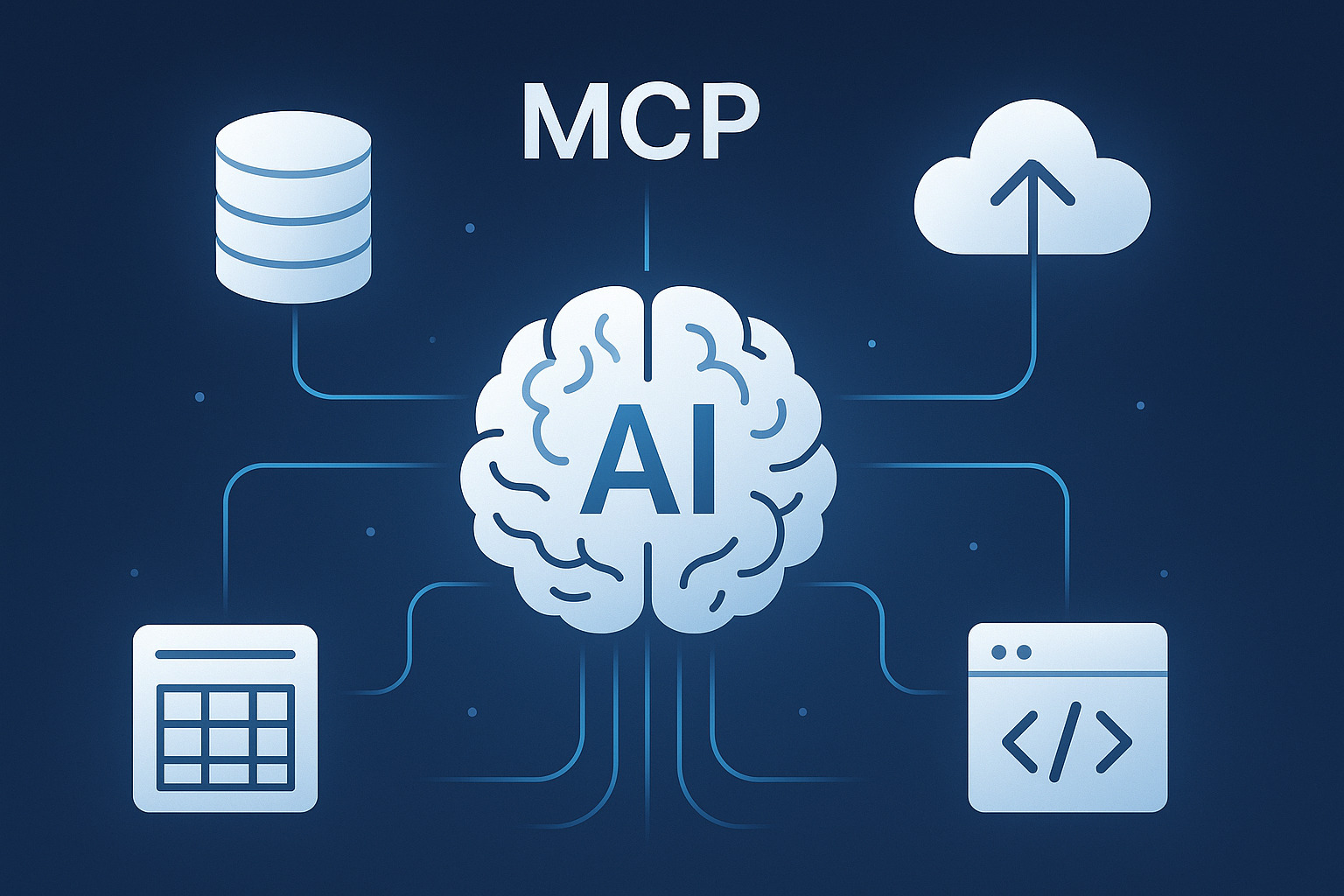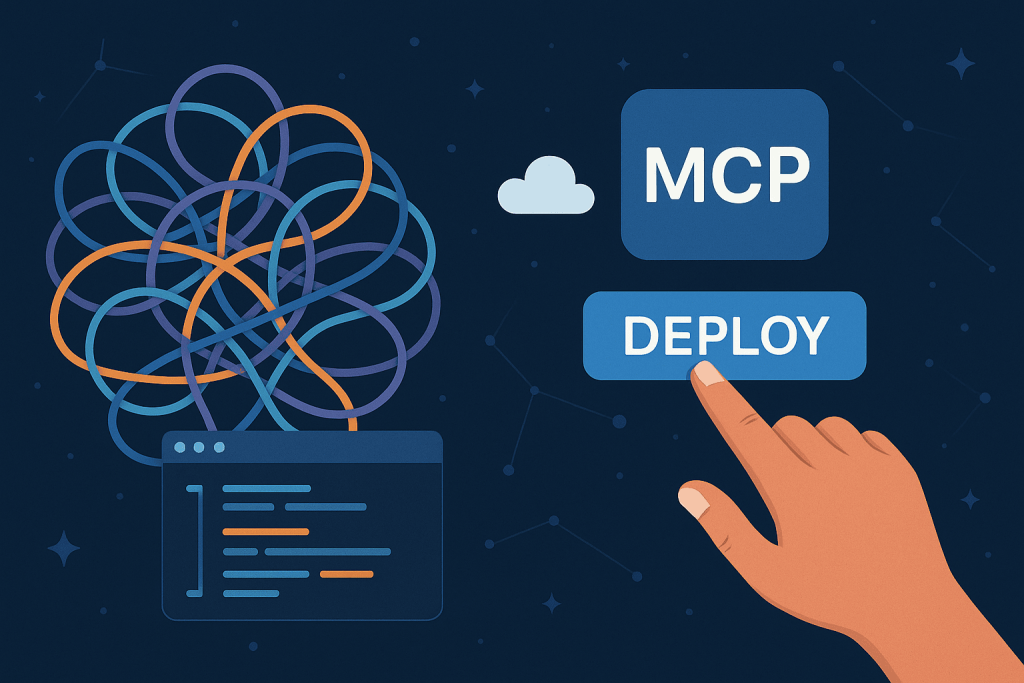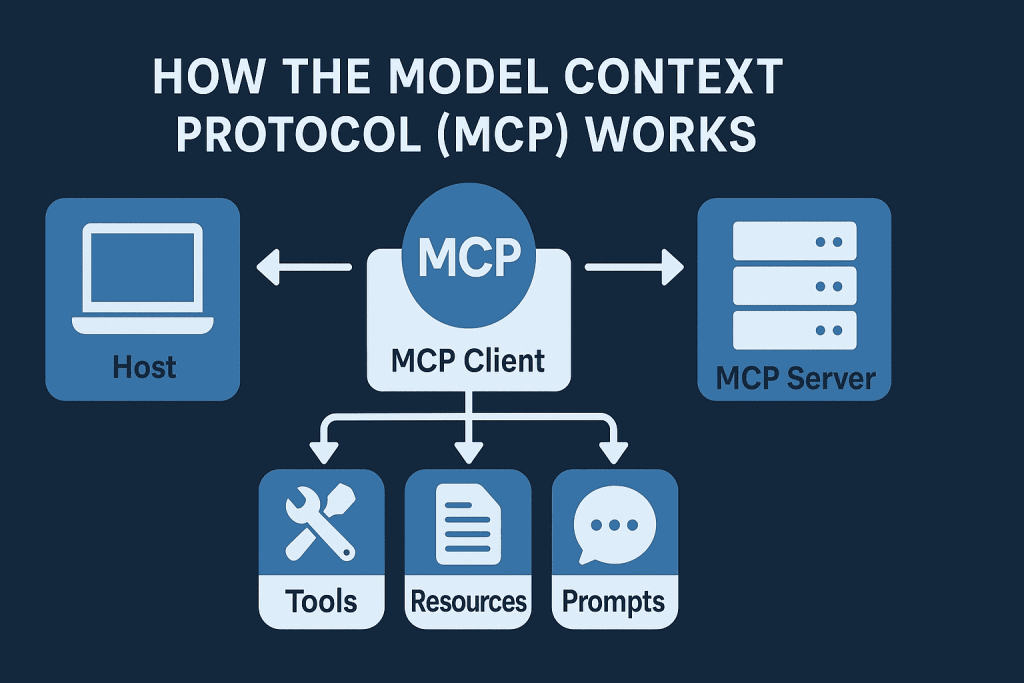
1. What is MCP?
MCP (Model Context Protocol) is an open standard that connects AI systems to external tools, data sources, and APIs. It allows AI to go beyond just responding it can act, fetch real-time data, and perform tasks using connected tools. MCP servers act as the bridge that enables these interactions, making AI systems far more dynamic and context-aware.
2. Are MCP servers free?
Yes, MCP servers are free at the protocol level. The Model Context Protocol is open-source under the MIT license, so anyone can use, modify, or distribute it without paying fees.
However, running an MCP server might still involve costs like:
- Hosting or infrastructure (AWS, Azure, or on-premise systems).
- Enterprise-grade managed services for MCP hosting or scaling.
In short, the MCP protocol is free, but you may pay for the infrastructure used to run it.
3. Are MCP servers safe?
MCP servers are designed with safety in mind. The protocol enforces explicit user consent before data or tools are exposed. It also allows developers to limit access with scope restrictions and supports audit logging to track every action.
To maximize safety, organizations should:
- Use encrypted communication channels (HTTPS or secure sockets).
- Grant minimum required permissions (least privilege).
- Run servers in sandboxed or isolated environments.
When these best practices are followed, MCP servers provide secure and transparent AI integrations.
4. Are MCP servers useful?
MCP servers are extremely useful. They transform AI models into action-oriented systems by enabling real-time interaction with live data and tools.
Common use cases include:
- Connecting AI assistants to CRMs, databases, or APIs.
- Automating workflows like sending emails or Slack messages.
- Powering IDEs and coding assistants to run queries or inspect code directly.
MCP provides a unified integration layer that saves development time, avoids vendor lock-in, and makes AI systems far more capable in real-world scenarios.
5. Are MCP servers stateless?
MCP servers can operate in a stateless mode. In this setup, every request is independent the server doesn’t retain memory or context from previous calls.
Stateless MCP servers are ideal when you need:
- One-off actions, like fetching or updating a single record.
- High scalability and fast request processing.
- Simple architecture without session tracking.
They typically use HTTP-based communication and are easier to deploy and scale.
6. Are MCP servers stateful?
MCP servers can also be stateful. The MCP protocol supports persistent sessions, allowing the server to remember context between calls.
A stateful server can:
- Maintain conversation history or user session data.
- Track permissions and tool usage over time.
- Cache results for performance optimization.
This mode is useful for multi-step AI workflows where the assistant needs to remember earlier actions or maintain context throughout the interaction.
7. Are MCP servers local?
MCP servers can run locally on your own device or network. The protocol supports stdio mode, which lets AI clients communicate directly with local processes, no internet connection required.
Local MCP servers are perfect for:
- Handling sensitive or private data in on-prem environments.
- Achieving low latency performance without cloud dependency.
- Organizations with strict data security policies.
Still, MCP servers can also run in the cloud or at the edge, offering flexibility between local control and global accessibility.
8. What’s the difference between stateless and stateful MCP servers?
| Feature | Stateless MCP Server | Stateful MCP Server |
|---|---|---|
| Memory | Does not retain context between requests | Remembers session or conversation data |
| Performance | Lightweight and scalable | Slightly heavier due to session management |
| Use case | Simple queries and data retrieval | Multi-step AI workflows with context |
| Connection type | HTTP (independent requests) | JSON-RPC streaming with session handshake |
| Persistence | None | Uses in-memory or database storage for context |
Developers typically choose stateless servers for speed and scale, while stateful servers are better for complex, conversational, or long-running AI tasks.
9. Can you build your own MCP server?
Yes, you can easily build your own MCP server. The ecosystem is open-source, with SDKs available in popular languages like Node.js, Python, and Go.
To build one:
- Choose your programming language.
- Define the tools, resources, or prompts your server will expose.
- Implement the MCP JSON-RPC interface.
- Test it locally with a compatible AI host like Claude Desktop.
Alternatively, you can use platforms such as MCPfy.ai, which let teams create and deploy MCP servers in under a minute, without coding or infrastructure setup.



